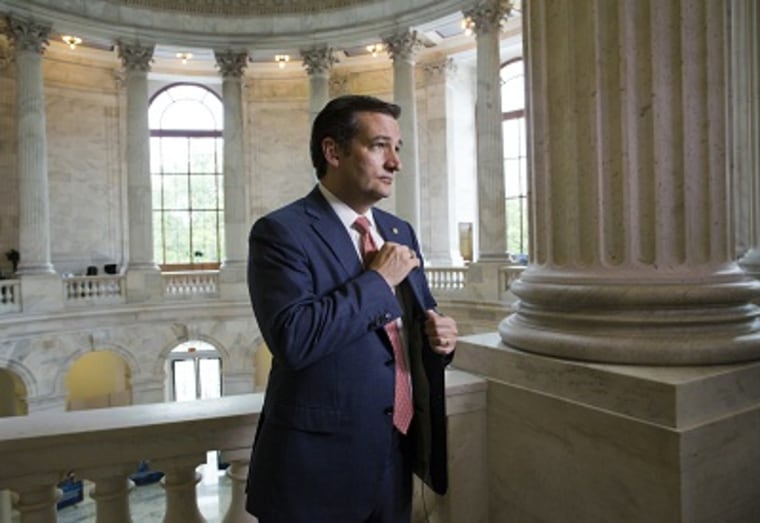As the Senate prepares for the immigration debate to begin on Tuesday, Sen. Ted Cruz, one of the top Republicans leading the opposition, said President Obama was the cause of the problems that may prevent passage of the current bill.
The push for a comprehensive overhaul of immigration enters a crucial phase this week in the Senate chamber, where Republicans remain divided over how to work with Democrats and President Obama. This past weekend, Sen. Kelly Ayotte became the fifth Republican to announce her support for the immigration bill.
But even after seven months of building support for comprehensive reform, the Gang of Eight is anticipating a contentious debate. The pathway-to-citizenship provision for the nation's estimated 11 million undocumented immigrants continues to be controversial among Republicans.
Sen. Cruz criticized the White House for politicizing the issue. "This bill, I think is being driven primarily by partisan politics and not by a desire to solve it," Cruz said.
"The biggest obstacle to passing common sense immigration reform is President Barack Obama," Cruz told ABC News. "A path to citizenship is the most divisive aspect of this bill. And the White House is insisting on it."
"The path the White House is going down, I believe, is designed for this bill to fail," Cruz said. "It is designed for it to sail through the Senate and then crash in the House to let the president go and campaign in 2014 on this issue."
Cruz has become one of the most vocal opponents of the bill--ignoring Republican leaders who hope to pass an immigration reform package as part of their effort to appeal to minorities. Sen. Marco Rubio, a Republican on the Gang of Eight who helped craft the legislation, has listened to conservatives' demands for tougher enforcement "triggers" that must be met in order to allow the path to citizenship to proceed.
Rubio has said that the White House and Congress cannot be soft on border security provisions (or he may vote against his own bill), but that legalization for undocumented immigrants will occur.
"Let’s be clear. Nobody is talking about preventing the legalization. The legalization is going to happen. That means the following will happen: first comes the legalization. Then come the measures to secure the border. And then comes the process of permanent residence. What we’re talking about here is the system of permanent residence. As for the legalization, the enormous majority of my colleagues have accepted that it has to happen and that it has to begin at the same time we begin the measures for [the border]. It is not conditional. The legalization is not conditional."
Sen. Rand Paul has also said he is open to backing the legislation also long as there is toughened border security. "I am the conduit between conservatives in the House who don't want a lot of these things and more moderate people in the Senate who do want these things," Paul said on Fox News Sunday. "I want to make the bill work, but see, the thing is, what they have in the Senate has zero chance of passing in the House."
When asked if he wanted to be the face of the opposition to the bill, Cruz replied that he was willing to stand up to do the right thing. "Number one [we need] to make sure, if we’re going to address immigration, that we actually secure the borders. This bill doesn’t do that. Number two: to improve legal immigration."
While Republicans have aimed to expand the party's support among Hispanic voters, Cruz shrugged off those concerns. "I have often said leadership in both parties is what has gotten us in this mess. And I think we ought to be doing our job, and standing for principle, regardless of the politics."
Democratic Senate Majority Leader Harry Reid has said that he wants a final vote on the bill before the Senate recesses for the July 4 holiday. The legislation will need several Republican votes to pass the 60-vote threshold required for passage.
